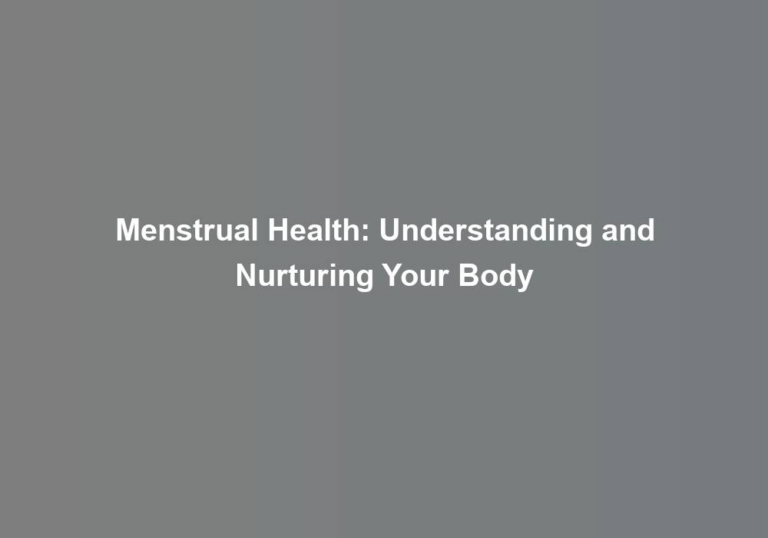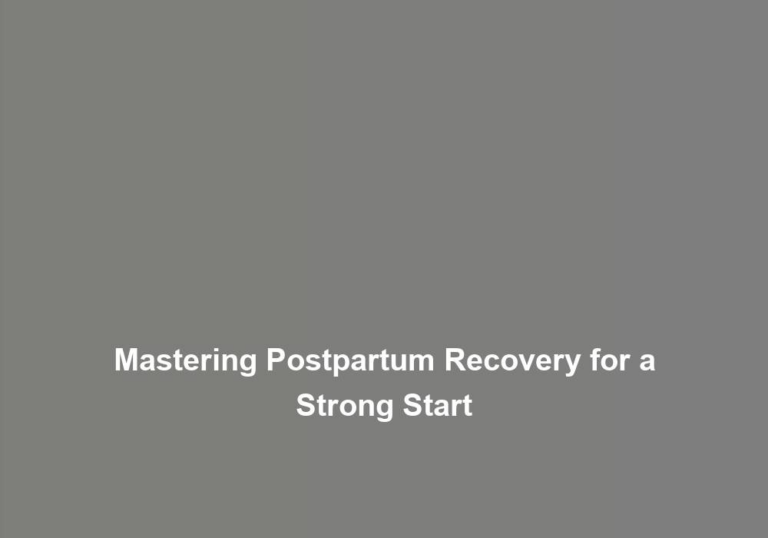Empowering Women: Your Journey Through Menopause
Are you feeling a sense of uncertainty and change as you navigate through the unique journey of menopause? As a woman, you may be experiencing a range of physical and emotional shifts that can leave you feeling overwhelmed or disconnected from yourself. However, there is a path to empowerment and self-discovery waiting for you on the other side of this transition. By understanding the changes happening in your body and mind, learning how to manage symptoms, and embracing self-care practices, you can not only navigate through menopause with grace but also emerge with a newfound sense of strength and wisdom.
Understanding Menopause
As you approach menopause, your body undergoes significant hormonal changes that mark the end of your reproductive years. These changes can have various health implications, and itG??s essential to understand what is happening in your body during this time. Hormonal changes during menopause occur as the ovaries produce less estrogen and progesterone, leading to the end of menstrual cycles. This transition can bring about symptoms such as hot flashes, night sweats, mood swings, and changes in sleep patterns. Understanding these hormonal shifts can help you navigate this phase of life with more ease.
The health implications of these hormonal changes are not only limited to the symptoms experienced. Reduced estrogen levels can impact bone health, potentially leading to an increased risk of osteoporosis. Heart health may also be affected, as estrogen plays a role in maintaining healthy cholesterol levels. Additionally, changes in hormone levels can influence overall emotional well-being and may contribute to an increased risk of certain conditions, such as depression and anxiety.
ItG??s important to recognize that each womanG??s experience with menopause is unique, and while these hormonal changes are a natural part of aging, they can still pose challenges. Seeking support from healthcare professionals, as well as friends and family, can be crucial during this time. Understanding the hormonal changes and their potential health implications empowers you to make informed decisions about your well-being as you transition through menopause.
Managing Physical Symptoms
Navigating the physical symptoms of menopause demands an understanding of how to manage the changes your body is undergoing. ItG??s essential to remember that every womanG??s experience with menopause is unique, and what works for one person may not work for another. Here are some key strategies to help you manage the physical symptoms of menopause:
-
Hormone Therapy: Discuss the option of hormone therapy with your healthcare provider. Hormone therapy can help alleviate hot flashes, night sweats, and vaginal dryness. ItG??s important to weigh the potential benefits and risks before making a decision.
-
Nutrition and Exercise: Pay attention to your diet and incorporate foods rich in calcium and vitamin D to support bone health. Regular exercise, such as walking, yoga, or swimming, can help manage weight, improve mood, and reduce the risk of osteoporosis.
-
Stay Hydrated: Drink plenty of water to help combat hot flashes and maintain overall health. Avoiding caffeine and alcohol can also help reduce the frequency and intensity of hot flashes.
-
Dress in Layers: Dressing in layers allows you to easily adjust to temperature changes that may occur due to hot flashes.
-
Stress Management: Practice stress-reducing techniques such as deep breathing, meditation, or yoga to help alleviate anxiety and mood swings.
Nurturing Emotional Well-Being
To nurture your emotional well-being during menopause, itG??s important to prioritize self-care and seek support from trusted individuals in your life. Menopause can be a challenging time emotionally, and itG??s essential to have coping strategies in place to navigate this period with resilience. First and foremost, remember that itG??s okay to prioritize your mental health. Self-care activities such as mindfulness, meditation, and gentle exercise can significantly contribute to your emotional well-being. Engaging in activities that bring you joy and relaxation can help alleviate stress and anxiety associated with menopausal symptoms.
Seeking support from friends, family, or a support group can also be incredibly beneficial. Surrounding yourself with understanding and empathetic individuals can provide a sense of belonging and emotional validation. ItG??s important to communicate your needs and feelings openly with those you trust, as this can foster a supportive environment that nurtures your emotional well-being.
In addition to seeking support from others, consider consulting a mental health professional if you find yourself struggling to cope with the emotional aspects of menopause. Therapy can provide valuable tools and strategies to manage stress, mood swings, and other mental health challenges that may arise during this time.
Embracing Self-Care Practices
Prioritize your well-being by incorporating regular self-care practices into your daily routine as you navigate through menopause. Embracing self-care practices can significantly impact your overall well-being and help you manage the physical and emotional changes that come with this life stage. By prioritizing self-care, you can cultivate self-compassion and effectively manage stress, allowing you to embrace this new phase of life with resilience and positivity.
Embracing Self-Care Practices
- Mindfulness Meditation: Engage in daily mindfulness meditation to reduce stress, calm your mind, and cultivate self-awareness.
- Regular Exercise: Incorporate regular physical activity, such as yoga, walking, or swimming, to boost your mood, reduce anxiety, and improve overall physical health.
- Healthy Nutrition: Prioritize a balanced diet rich in fruits, vegetables, whole grains, and lean proteins to support your bodyG??s changing needs and promote overall well-being.
- Restorative Sleep: Establish a relaxing bedtime routine and prioritize quality sleep to support hormonal balance and reduce the impact of menopausal symptoms.
- Creative Outlets: Engage in creative activities that bring you joy, such as painting, writing, or gardening, to channel your emotions and reduce stress levels.
Seeking Support and Community
As you continue on your journey through menopause, itG??s important to reach out and connect with others who can provide support and understanding as you navigate this phase of life. Building a strong support network can make a significant difference in how you experience menopause. Whether itG??s sharing experiences, seeking advice, or simply knowing youG??re not alone, finding a community that resonates with you is vital. Here are some avenues where you can seek support and community:
| Support Network | Online Resources |
|---|---|
| Menopause Support Groups | Educational Websites |
| Community Events | Social Media Communities |
| Wellness Workshops | Telehealth Services |
| Therapeutic Programs | Virtual Support Groups |
Engaging in menopause groups, community events, or wellness workshops can help you connect with others going through similar experiences. These gatherings often provide a safe space for sharing stories, learning from experts, and finding solace in the company of those who understand. Additionally, online resources such as educational websites, social media communities, and virtual support groups offer a convenient way to access information and connect with others from the comfort of your own home.
Empowering Mindset Shifts
Shifting your mindset towards empowerment during menopause involves embracing change and finding strength in your journey. ItG??s natural to feel overwhelmed by the physical and emotional changes that come with menopause, but with the right mindset, you can navigate this phase with confidence and grace. Here are some techniques to help you cultivate a positive mindset and embrace empowerment:
- Practice Gratitude: Start each day by reflecting on things you are grateful for. This simple practice can shift your focus from challenges to the positive aspects of your life.
- Affirmations: Use positive affirmations to counter any negative self-talk. Repeat phrases that empower and uplift you, such as G??I am strong and capableG?? or G??I embrace change with confidence.G??
- Mindfulness and Meditation: Cultivate a practice of mindfulness and meditation to stay present and reduce stress. This can help you approach challenges with a calm and clear mind.
- Setting Boundaries: Learn to say no to things that drain your energy and create space for activities and relationships that bring you joy and fulfillment.
- Seeking Support: Surround yourself with people who uplift and support you. Building a strong support system can provide the encouragement and validation you need during this transformative phase of life.
Conclusion
You are not alone in your journey through menopause. In fact, did you know that 85% of women experience symptoms like hot flashes, mood swings, and fatigue during this time? Understanding the physical and emotional changes, nurturing your well-being, practicing self-care, seeking support, and embracing an empowering mindset can make this transition more manageable. Remember, you have the power to navigate menopause with strength and grace. Stay informed, stay supported, and stay empowered.







